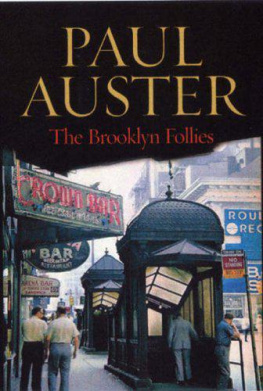PERSPECTIVES ON PERCIVAL EVERETT
PERSPECTIVES ON Percival Everett
Edited by Keith B. Mitchell and Robin G. Vander

www.upress.state.ms.us
Designed by Peter D. Halverson
The University Press of Mississippi is a member of the Association of American University Presses.
Copyright 2013 by University Press of Mississippi
All rights reserved
Manufactured in the United States of America
First printing 2013
Library of Congress Cataloging-in-Publication Data
Perspectives on Percival Everett / edited by Keith B. Mitchell and Robin G. Vander.
p. cm. (Margaret Walker Alexander series in African American studies)
Includes bibliographical references and index.
ISBN 978-1-61703-682-8 (cloth : alk. paper) ISBN 978-1-61703-683-5 (ebook)
I. Everett, Percival L.Criticism and interpretation. I. Mitchell, Keith B., 1962
II. Vander, Robin G.
PS3555.V34Z85 2013
813.54dc23
2012021646
British Library Cataloging-in-Publication Data available
Contents
The Art of Percival Everett
KEITH B. MITCHELL AND ROBIN G. VANDER
(re)Thinking Identity and Meaning in Percival Everetts
The Water Cure
JONATHAN DITTMAN
Forclusion in Percival Everetts o
SARAH MANTILLA GRIFFIN
Framing Text to Set Discourse in a Cultural Continuum
RONALD DORRIS
True Romance
FRDRIC DUMAS
Sythesizing Everetts Critique of Race, Religion, and Science
RICHARD SCHUR
Blues, Jazz, and the Difficult Journey to the Self in Percival
Everetts Suder
UZZIE CANNON
From Stereotype to Cosmopolitan to Grotesque in Percival Everetts
Suder
ANTHONY STEWART
Percival Everetts Corporeal Landscapes in re: f (gesture)
SARAH WYMAN
Percival Everetts Performance Turn in For Her Dark Skin
ROBIN G. VANDER
Acknowledgments
Keith: I would like to acknowledge the amazing folks at the Virginia Foundation for the Humanities who, in the summer of 2010, gave me time, space, and tremendous resources to work on this project. I would also like to thank my friends and colleagues in the Department of English at the University of Massachusetts, Lowell. In particular, I would like to thank my chair, Professor Anthony Szczeisul, for simply being there. His presence makes all the difference in the world. In addition, my conversations with Professors Jonathan Silverman, Michael Millner, Todd Tiechten, and Todd Avery gave me pause to even more deeply consider my role as teacher, scholar, and colleague, especially in light of their own rigorous standards of excellence. Last, but never least, I am grateful to Ms. Paula Haines and Professors Melissa Pennell, Marlow Miller, Jeannie Judge, Laura Barefield, Shelley Barish, and Sue Kim for their unwavering support and friendship.
Robin: I am deeply grateful to my colleagues in the Department of English at Xavier University of Louisiana and to those across the campus in Communication Studies and in Art who continuously offer their support and encouragement. My department chair, Professor Nicole P. Greene, was instrumental in making sure that I had time to pursue this project and others, and that my research and teaching were given space to grow. Professor Bonnie Jo Noonan provided friendship, constructive critiques, and a detailed eye for the practice of smart and accessible writing. Her sheer joy for teaching and writing are inspiring. My conversations with Mora Beauchamp-Byrd, Kimberly Chandler, Monique Guillory, and Ross Louis continuously opened intellectual doors for me to keep moving forward. Lastly, to Professors Thaddeo Babiiha, Violet Bryan, and Ronald DorrisI respectfully remain the acorn among the oaks.
The editors, collectively, wish to thank the contributors to Perspectives on Percival Everett for their scholarship, commitment, and patience in developing this project. We are indebted to the editors and staff at the University Press of Mississippi, in particular, Walter Biggins for believing in this project from its inception and to Anne Stascavage for working closely with us to bring it to fruition. We also appreciate the thoughtful care provided by our copyeditor, Debbie Upton. Lastly, our utmost appreciation goes to Professor Percival Everett for such a compelling literary and artistic career and for his abiding support of this particular project in art and spirit.
Introduction
Changing the Frame, Framing the Change
The Art of Percival Everett
KEITH B. MITCHELL AND ROBIN G. VANDER
So we must keep trying anything and everything, improvising, borrowing from others, developing from others, dialectically using one text as comment upon another, schematizing, using the incentive to new wanderings, returning from these excursions to schematize again, being oversubtle when the straining seems to promise some further glimpse, and making amends by reduction to some very simple anecdote. KENNETH BURKE
To say that Percival Everett is one of the most accomplished and prolific contemporary African American writers is also to say that Percival Everett is one of the most accomplished and prolific American writers. He is the author of eighteen novels, three collections of short fiction, three collections of poetry, and a childrens book. Born in 1956 in Fort Gordon, a small military base in Augusta, Georgia, he was primarily raised in South Carolina. Everett received his M.A. in fiction from Brown University in 1982, and was an associate professor at the University of Kentucky from 1985 to 1988, and a full professor at the University of Notre Dame from 1988 to 1991. He is currently Distinguished Professor of English at the University of Southern California. Since the publication of his first novel, Suder, in 1983, he has been the recipient of numerous awards and accolades. These include the New American Writing Award for Zulus in 1990; the Hillsdale Award; the Fellowship of Southern Writers (2001); the Hurston/Wright Legacy Award for Erasure (2002); the American Academy of Arts and Letters Literature Award (2003); the PEN USA Literary Award (20062007); and the Dos Passos Prize in Literature, the Charles Angoff Award, the Premio Vallambrosa Gregor von Rezzori Prize (Italy), the Hurston/Wright Legacy Award, and the Believer Book Award, all received in 2010. Everetts literary production has been impressive; on average, he has managed to publish at least one novel per year since 1983. One would imagine that most writers who might produce such a large body of creative work would suffer from a decline in imaginative and innovative faculties; however, this is not the case with Percival Everett. Everett never crosses the same river twice. He has experimented with and mastered the art of creative expression in many different literary genres that sends the reader on rollicking rollercoaster rides: dizzying and thrilling, and ultimately immensely satisfying. One need only read his work to see the topical, stylistic, and narrative range of his literary output: Suder, about an ageing African American baseball player on an existential quest for wholeness; Zulus (1990), a post-apocalyptic, satirical novel that echoes Lewis Carrolls Alice in Wonderland; The Water Cure (2007), a subtle indictment of post-911 American politics during the Bush administration; I Am Not Sidney Poitier (2009), a narrative that interrogates the very nature of subjectivity; and
Next page









